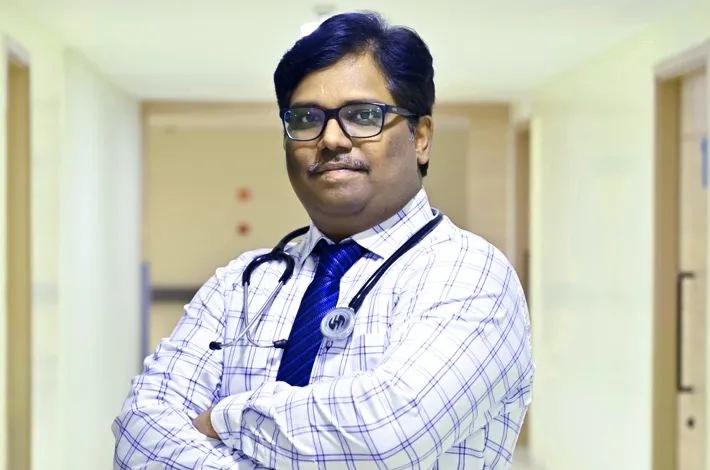Sepsis Awareness: The Hidden Killer After Simple Infections
06-10-2025 05:00:36 PM

Hyderabad: Have you ever thought a minor infection, like a cough, fever, or a small wound, could turn life-threatening? For many, it does. This hidden danger is called sepsis, a condition where the body’s immune system, instead of fighting infection, overreacts and begins damaging its own tissues and organs.
Globally, sepsis is one of the leading causes of death. In India, the numbers are alarming: a study estimated 11.3 million sepsis cases and 2.9 million deaths in 2017 alone. It is also one of the most common reasons for ICU admissions, with nearly one in two patients in Indian ICUs battling sepsis. These figures highlight why timely awareness and treatment are so important.
Dr. Vikram Rao S, Best Intensive Care Specialist in Kondapur at Sri Sri Holistic Hospitals, emphasizes the importance of recognizing sepsis early and acting quickly to prevent life-threatening complications in this article.
What is Sepsis?
Sepsis is your body’s extreme reaction to an infection. Instead of healing you, the immune system launches a chain reaction that spreads inflammation throughout the body. This can lead to tissue damage, organ failure, and, if untreated, death.
The infection may begin in the lungs (like pneumonia), urinary tract, skin wounds, or even the abdomen (like appendicitis). While anyone can develop sepsis, high-risk groups include older adults, newborns, pregnant women, people with chronic illnesses like diabetes or kidney disease, and those with weakened immunity.
Symptoms You Should Never Ignore
Sepsis can progress rapidly, and early recognition is crucial. Common warning signs include:
Fever, chills, or very low body temperature
Fast heartbeat and rapid breathing
Sudden confusion, agitation, or disorientation
Extreme pain or discomfort
Reduced urination
Warm, clammy, or sweaty skin
Rash or dark red spots on the skin
If untreated, sepsis can escalate to septic shock, where blood pressure drops dangerously low, leading to multiple organ failure. This can cause death in as little as 12 hours.
Why Does Sepsis Go Unnoticed?
One of the biggest challenges is that sepsis often starts with symptoms similar to common infections, making it difficult to recognize. Many people delay seeking medical attention, believing the illness will pass or relying on home remedies. Unfortunately, every hour lost increases the risk of complications and death.
Healthcare experts stress that sepsis is not contagious, but the infections leading to it, like pneumonia or urinary tract infections, can spread. This makes prevention, early diagnosis, and quick hospital care all the more important.
Treatment and Recovery
Sepsis is a medical emergency that requires immediate hospitalization. Standard treatment includes:
Antibiotics to fight infection
IV fluids to maintain blood pressure
Vasopressor medicines if blood pressure drops too low
Organ support therapies, like dialysis for kidney failure or ventilators for breathing difficulty
Surgery if the infection source, such as an abscess, needs removal
While many patients recover completely with timely care, others may face long-term effects like fatigue, memory problems, or recurring infections. Survivors also have a higher chance of developing sepsis again, making follow-up care vital.
Conclusion
Sepsis is often called the “hidden killer” because it can develop quietly after what seems like a simple infection. Recognising the symptoms early and seeking immediate medical care is the only way to reduce its deadly impact.
Sri Sri Holistic Hospitals, Kondapur, has a dedicated critical care team led by Dr. Vikram Rao S, offering 24/7 intensive care, advanced infection management, and life-saving interventions for patients with sepsis. Book a consultation at your earliest convenience to safeguard your health against hidden threats, such as sepsis.








